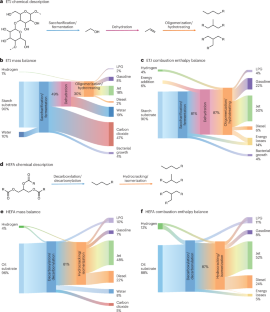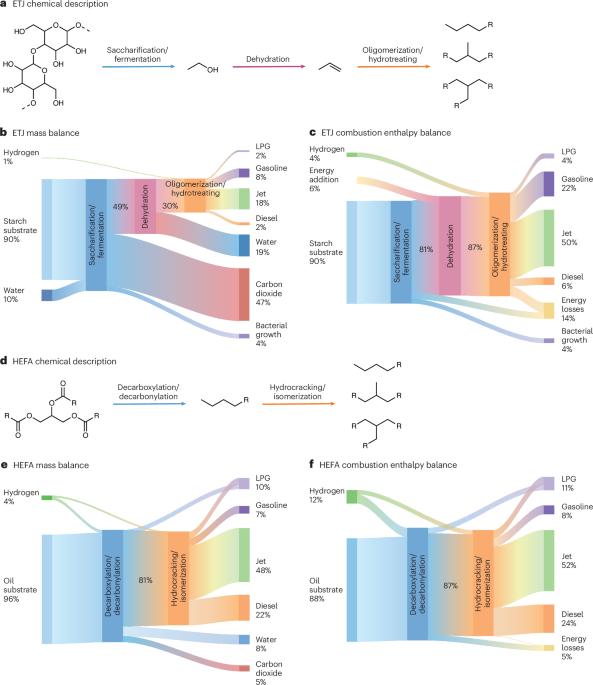Lignin deoxygenation for the production of sustainable aviation fuel blendstocks
IF 37.2
1区 材料科学
Q1 CHEMISTRY, PHYSICAL
引用次数: 0
Abstract
Lignin is an abundant source of renewable aromatics that has long been targeted for valorization. Traditionally, the inherent heterogeneity and reactivity of lignin has relegated it to direct combustion, but its higher energy density compared with polysaccharides makes it an ideal candidate for biofuel production. This Review critically assesses lignin’s potential as a substrate for sustainable aviation fuel blendstocks. Lignin can generate the necessary cyclic compounds for a fully renewable, sustainable aviation fuel when integrated with current paraffinic blends and can meet the current demand 2.5 times over. Using an energy-centric analysis, we show that lignin conversion technologies have the near-term potential to match the enthalpic yields of existing commercial sustainable aviation fuel production processes. Key factors influencing the viability of technologies for converting lignin to sustainable aviation fuel include lignin structure, delignification extent, depolymerization performance, and the development of stable and tunable deoxygenation catalysts. Lignin is an abundant source of renewable aromatic carbon and is of interest as a feedstock for sustainable fuels. This Review provides an overview of production technologies, jet fuel requirements, effects of lignin chemistry, depolymerization techniques, upgrading of bio-oils and challenges for catalysis using real biomass feedstocks.


木质素脱氧用于生产可持续航空混合燃料
木质素是一种丰富的可再生芳烃来源,长期以来一直是生物燃料的目标。传统上,木质素固有的异质性和反应性使其只能直接燃烧,但与多糖相比,木质素具有更高的能量密度,因此是生物燃料生产的理想候选原料。本综述严格评估了木质素作为可持续航空混合燃料基质的潜力。当木质素与目前的石蜡混合燃料相结合时,可产生完全可再生、可持续航空燃料所需的环状化合物,并可满足目前需求的 2.5 倍。通过以能源为中心的分析,我们表明木质素转化技术在短期内有潜力达到现有商业可持续航空燃料生产工艺的焓产量。影响木质素转化为可持续航空燃料技术可行性的关键因素包括木质素结构、脱木质素程度、解聚性能以及开发稳定可调的脱氧催化剂。
本文章由计算机程序翻译,如有差异,请以英文原文为准。
求助全文
约1分钟内获得全文
求助全文
来源期刊

Nature Materials
工程技术-材料科学:综合
CiteScore
62.20
自引率
0.70%
发文量
221
审稿时长
3.2 months
期刊介绍:
Nature Materials is a monthly multi-disciplinary journal aimed at bringing together cutting-edge research across the entire spectrum of materials science and engineering. It covers all applied and fundamental aspects of the synthesis/processing, structure/composition, properties, and performance of materials. The journal recognizes that materials research has an increasing impact on classical disciplines such as physics, chemistry, and biology.
Additionally, Nature Materials provides a forum for the development of a common identity among materials scientists and encourages interdisciplinary collaboration. It takes an integrated and balanced approach to all areas of materials research, fostering the exchange of ideas between scientists involved in different disciplines.
Nature Materials is an invaluable resource for scientists in academia and industry who are active in discovering and developing materials and materials-related concepts. It offers engaging and informative papers of exceptional significance and quality, with the aim of influencing the development of society in the future.
 求助内容:
求助内容: 应助结果提醒方式:
应助结果提醒方式:


